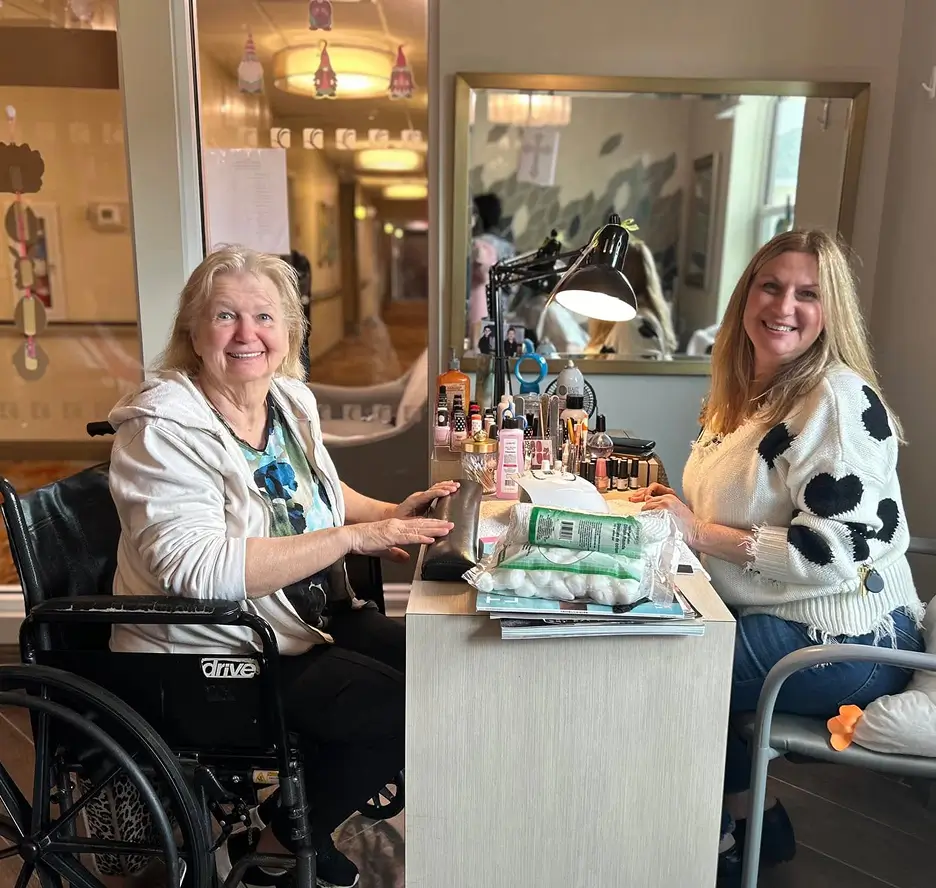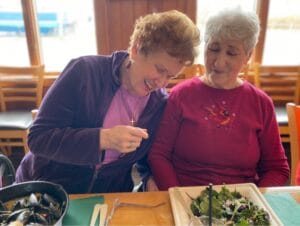Assisted living can be beneficial for a wide range of individuals. But who qualifies for assisted living? And what requirements are needed to be able to live in an assisted living facility?
Assisted living is for older adults and seniors who need extra help with activities of daily living.
Whether you’re a daughter, like Lauren D., who has a grandmother who celebrated her 99th birthday with beautiful flowers and a fully decorated door, or just moving out of a home that you’ve lived in for 40+ years, like Jen G.’s uncle, assisted living is for anyone who needs a little extra help with life’s daily tasks.
Curious to learn more? Well then, you’ve come to the right place.
Village Green here: for more than 20 years, we’ve been providing quality assisted living and memory care solutions for older adults and seniors in Levittown, NY. Join us as we discuss who qualifies for assisted living, in addition to:
- What the qualifications are for assisted living admission
- Whether admission to an assisted living facility can be denied
- 4 key requirements needed to be admitted to an assisted living facility
- Resources to help you find the right assisted living facility for you and your loved one
- How Village Green and similar assisted living and long-term care facilities work
What does it take to qualify for assisted living?
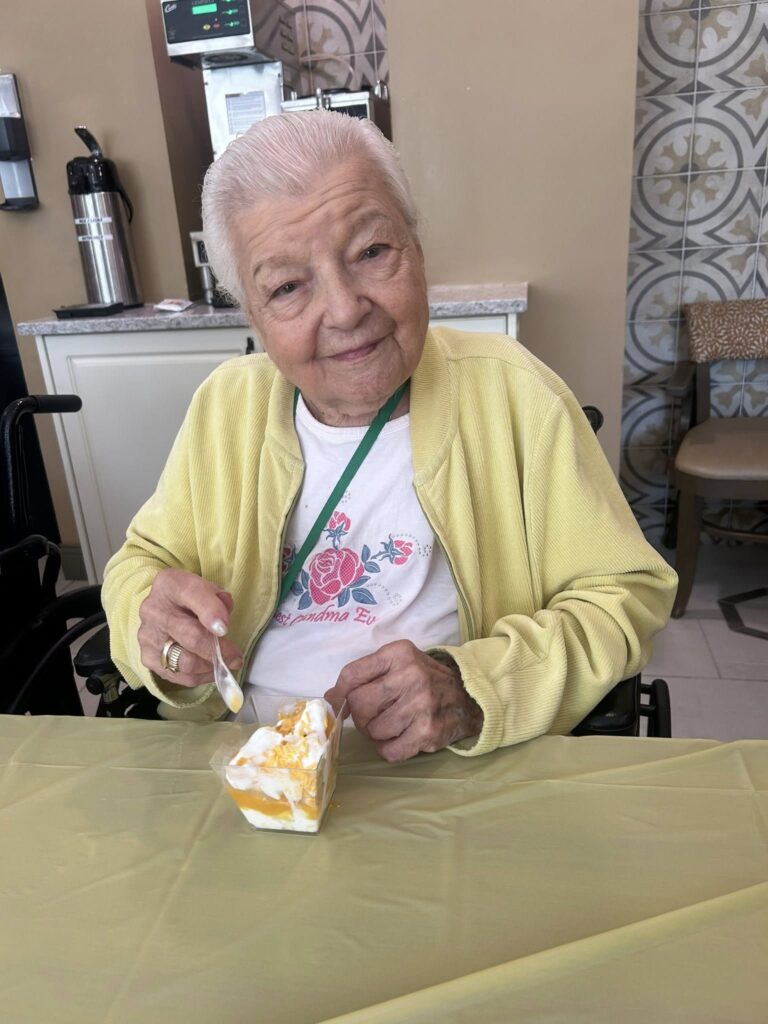
The qualifications vary depending on the assisted living facility, but in most states, admission eligibility is determined by if individuals need the following:
- Little to no skilled nursing services
- Rehabilitation services
- Daily help with every day tasks such as eating, bathing, housekeeping, and transportation to and from appointments
- Managing medication regimes
In contrast, assisted living isn’t for people who need continuous supervision, extensive medical care, or dedicated memory care.
Furthermore, many assisted living facilities in the United States require that individuals need help performing at least two activities of daily living (ADLs) to qualify for assisted living. ADLs include:
- Getting dressed
- Making meals
- Grooming, personal care, and hygienic care
- Taking baths
- Transferring from sitting to standing or from lying to sitting down
- Continence care
- Walking
In summary, assisted living is for residents who can receive a high level of care but that don’t need 24/7 monitoring. The latter situation is more aligned with skilled nursing care.
What disqualifies a person from assisted living admission (3 criteria)?
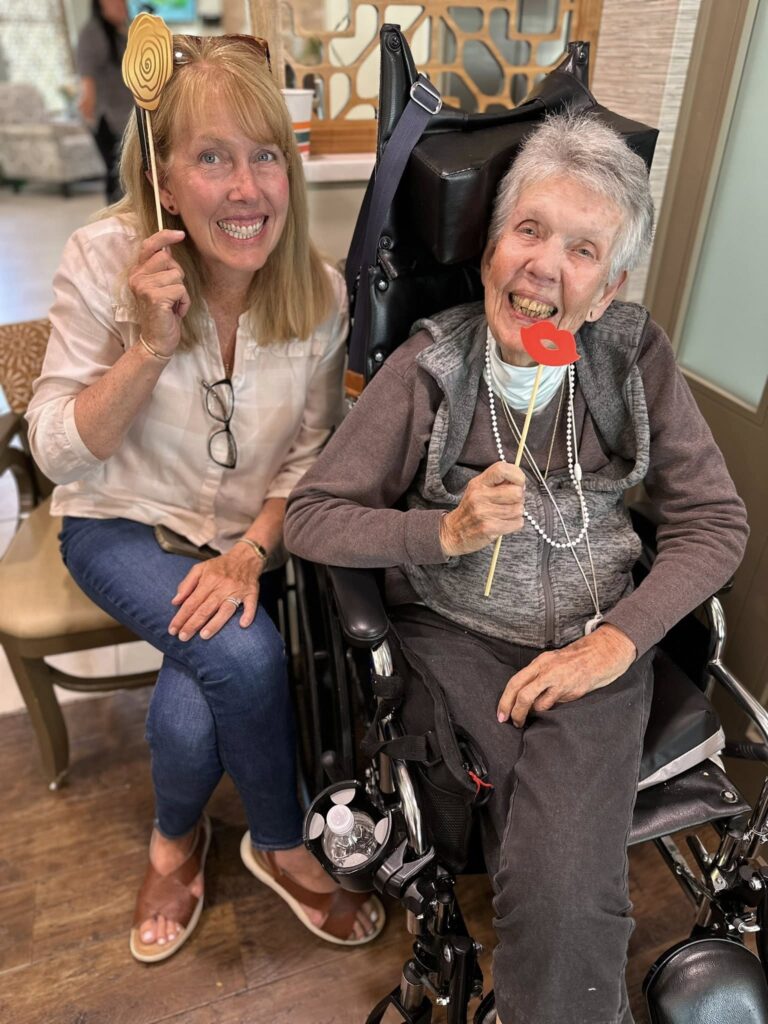
The short answer is that if a person doesn’t meet the criteria for assisted living, the facility can deny them admission. A common reason why individuals might be denied admission is if the level of care the facility provides can’t meet the individual’s care needs.
Some of the most common reasons and circumstances that are grounds for being denied admission include when the health and safety of the resident is in danger, including:
- The individual has severe memory issues
- They have serious and very involved medical needs
- The individual must be confined to their bed for most hours of the day
Let’s take a look at each point in the next few sections.
1. Severe memory issues
For patients with dementia who show any of the following, they may not be a great fit for assisted living.
- They have trouble swallowing liquid or solid food.
- They have behavioral issues
- They tend to wander
If an individual exhibits any of the above behaviors, assisted living communities may not be the best for them, as the communities may not have the resources to cater to their needs.
What’s more, assisted living communities don’t staff a large roster of employees — and since individuals with memory issues often need 24/7 supervision — assisted living facilities aren’t always best for their needs.
If you’re trying to decide whether assisted living or memory care is best for you and your loved one, we always recommend speaking with as much candor as possible regarding your and your loved one’s situation. That way, the care community can ensure that your loved one receives the right level of care for their needs.
Not sure whether assisted living or skilled nursing care is right for you and your loved one? You can always reach out to your local assisted living community or a Village Green staff member.
Talking with a dedicated staff member will give you a strong sense of whether the community in question can provide for your and your loved one’s care needs.
2. Serious and very involved medical needs
One of the eligibility requirements for assisted living is the absence of serious and very involved medical needs. For example, extensive wound care may disqualify a person from an assisted living facility.
If a patient is recovering from an injury or accident, a skilled nursing facility may be a better choice, at least until the person has healed.
What’s more, many assisted living care communities may not be able to provide care to patients who need any of the following:
- Tracheostomies
- Feeding tubes
- Care for serious infections
- Gastrointestinal care
As such, each assisted living community is different, so make sure to check in before ruling out that a community isn’t right for you and your loved one.
3. Being confined to a bed
One important point to note about assisted living is that prospective residents need to be able to, for the most part, ambulate with independence.
While they’ll receive help with daily activities, people who are confined to a bed aren’t ideal candidates for assisted living. Someone who needs round-the-clock bedside care for ADLs may be better suited for higher levels of care, such as that of a skilled nursing facility.
Once admitted, what’s required of a new assisted living resident (4 parts)?

If you determine that assisted living supportive services and wellness programs are the right option for you and your loved one, here’s what’s required once you’re admitted into an assisted living senior living facility.
- You’ll sign a handful of forms and agreements.
- You’ll be asked about your medical history.
- You’ll take assessments.
- Your assisted living care team will create a care plan with you.
1. Legal forms and agreements
Once you meet with your facilities admissions coordinator, you’ll start gathering relevant forms, signing contracts and agreements, and making final preparations to move in to the facility.
What you can expect your admissions team to ask you about includes:
- Admissions applications
- Consent forms to release key medical information
- Signing policies related to living in the community
- Information about the cost of care
- Patient consent form stating that the patient consents to receive care
- Criminal background forms
- Medical forms related to signing off that the assisted living community will provide daily care
What’s more, some communities will offer assistance with filling out the form as well as flexibility with its signing. For example, many communities will sign the paperwork before or on the day of admission.
Finally, the admissions coordinator will also collect any insurance information and determine to what extent insurance covers assisted living. The facility will verify insurance coverages and authorized procedures, as well as payment options, such as long-term care insurance or other forms of payment.
2. A record of medical history
The assessment coordinator will also review a few items related to medical history, including:
- Height
- Weight
- Allergies worth noting
- Diagnoses worth noting
- Recent annual physical results
Determining baseline metrics ensures a resident’s safety and health while living in a care facility.
3. Cognitive, emotional, and physical assessments
Speaking of medical history, a senior care specialist will also administer different assessments to help create a care plan that best suits your and your loved one’s needs. Various cognitive, emotional, and physical assessments on the following topics may be given:
- Amount of care needed: The level of care needed to live a fully functional life
- Medication management: The extent to which a senior care professional, nurse, or resident manages medication
- Mental health assessments: Assessments aimed at determining whether the resident is diagnosed with or showing the early stages of Alzheimer’s disease, Parkinson’s disease, and other forms of dementia
- Recreational assessments: Every six months, assessments are administered to determine what type of activities of daily living (ADLs) the resident can perform
- Sensory-based assessments: These assessments test a resident’s vision and hearing to determine which supports, such as occupational or music therapy, are beneficial for the resident’s needs.
4. A complete care plan
Once assessments are complete and a resident’s needs are determined, the senior care team at an assisted living community creates personalized care plans, complete with relevant care services, to help residents thrive in their community.
The resident’s primary care physician is often involved at this point. Each care plan is often made up of the following:
- Initial and follow-up health assessments
- Types of medicines needed
- How often medical services are needed
- Diet and food preferences
- On-site activities beneficial for their health
- Equipment or supplies designed for seniors
- Lifestyle preferences
- And more
Once the care plan is set in motion, the assisted living care team will follow up and adapt the plan as needed or determine if assisted living services still work for the individual.
In cases where a resident experiences significant memory loss, an assisted living community may move the resident to memory care units designed for seniors with dementia or Alzheimer’s disease.
For example, many retirement communities accept residents with and without memory loss. We have separate wings of our facility dedicated to those with memory-loss related conditions and those who just need a little extra help around the house.
Whatever your preference may be, finding the right resources will help you determine which form of assisted living is best for you and your loved one.
Resources to help you find assisted living options
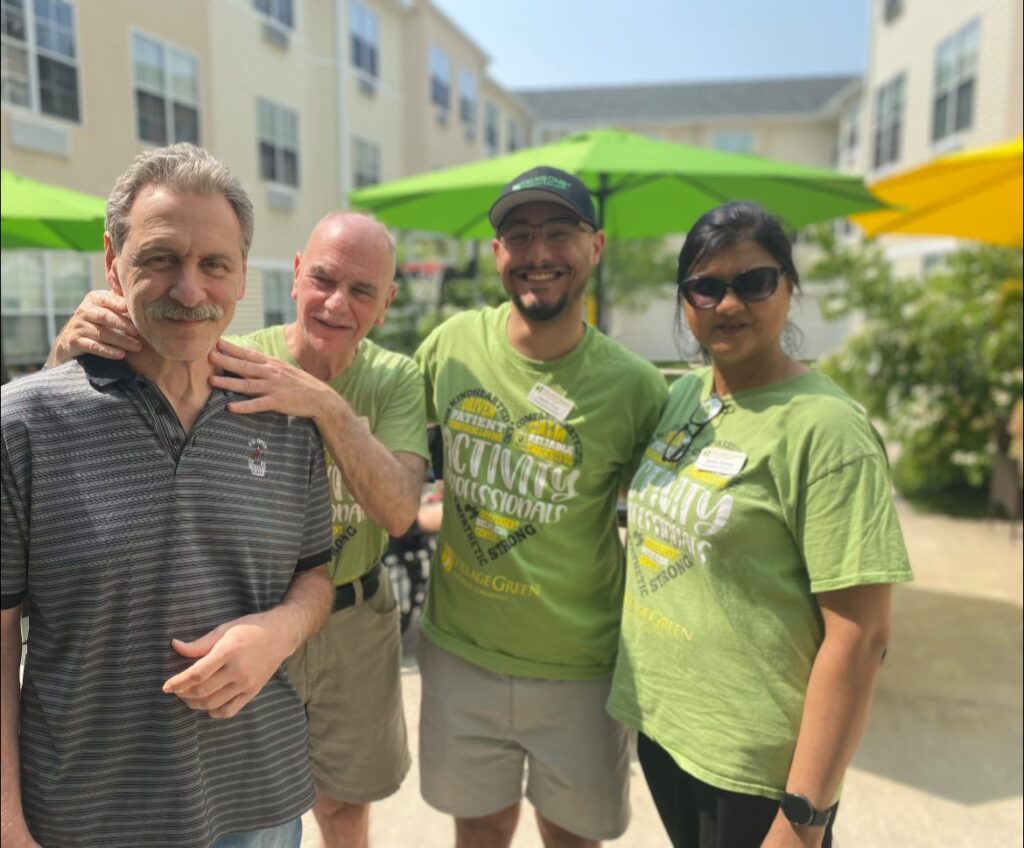
Many assisted living community residents have a variety of complex conditions that require specialized care. As such, finding the right community is key to living a healthy life.
The following resources may help you in finding the right care for you and your loved one’s needs:
- The California Department of Aging’s resources
- The American Health Care Association’s National Center for Assisted Living (AHCA NCAL)
- The Administration for Community Living’s (ACL) Eldercare Locator
What’s more, you can always get in touch with one of our senior care specialists free of charge. We know residents value their independence, so we’d be happy to have a conversation with you and your loved one about assisted living to ensure assisted living allows them to live a life of independence and freedom.
“The staff are compassionate, attentive, and always willing to listen.”

Those are the words of Christine L., a daughter of a resident at our facility. At assisted living facilities, staff are kind, dedicated to providing attentive care, and always giving a willing and listening ear.
That’s how we, and most assisted living communities, operate. We provide world-class care that addresses the eight dimensions of wellness and ensures every resident receives each according to their needs.
Curious to see what our care looks like in person? See all the action for yourself on our Facebook page here.
How Village Green’s assisted living facility works for seniors
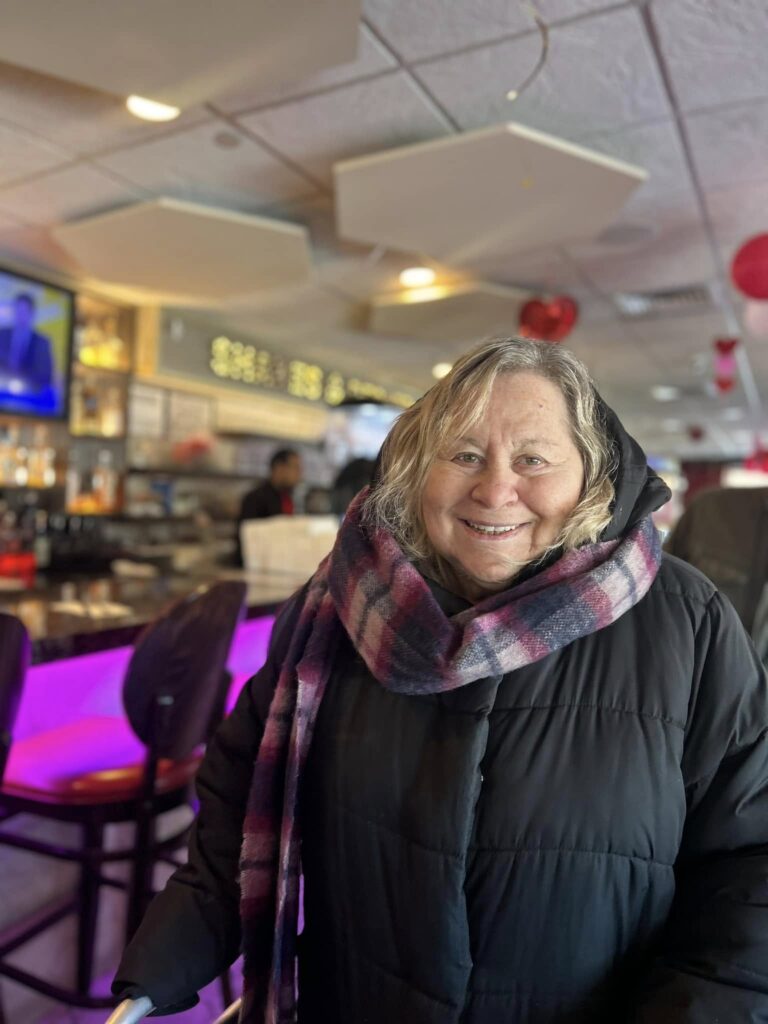
The cost of assisted care continues to rise across, according to a Statista.com (2023) report. We know that assisted living care can be expensive, which is why we’re committed to providing world-class care, lifestyle supports, and flexible financing to support you and your loved one along your journey.
That’s because we believe every person should have access to quality care that won’t break the bank. With us, you’ll receive three fresh, chef-prepared meals daily, support with ADLs like bathing, a packed calendar of recreational activities and trips, and so much more.
But what really differentiates us from others is that we support the eight dimensions of wellness in all of our activities and operations.
You have to see it to believe it.
If you’re curious to see what our Levittown, NY assisted living community offers, we invite you to stop by for a tour — and lunch is on us!
Discover what’s got everyone talking about our Village. To book your tour and complimentary lunch, contact us today. We look forward to chatting with you soon!
Levittown NY’s Premier Assisted Living Neighborhood: Welcome to Our Village

